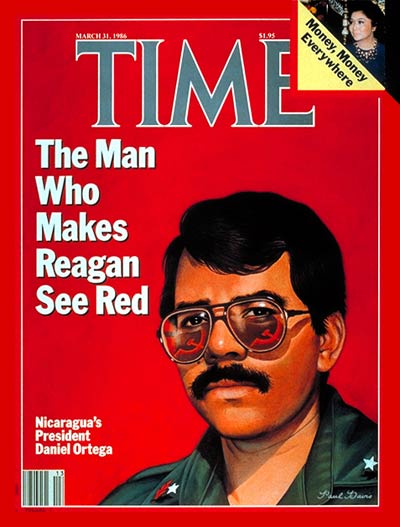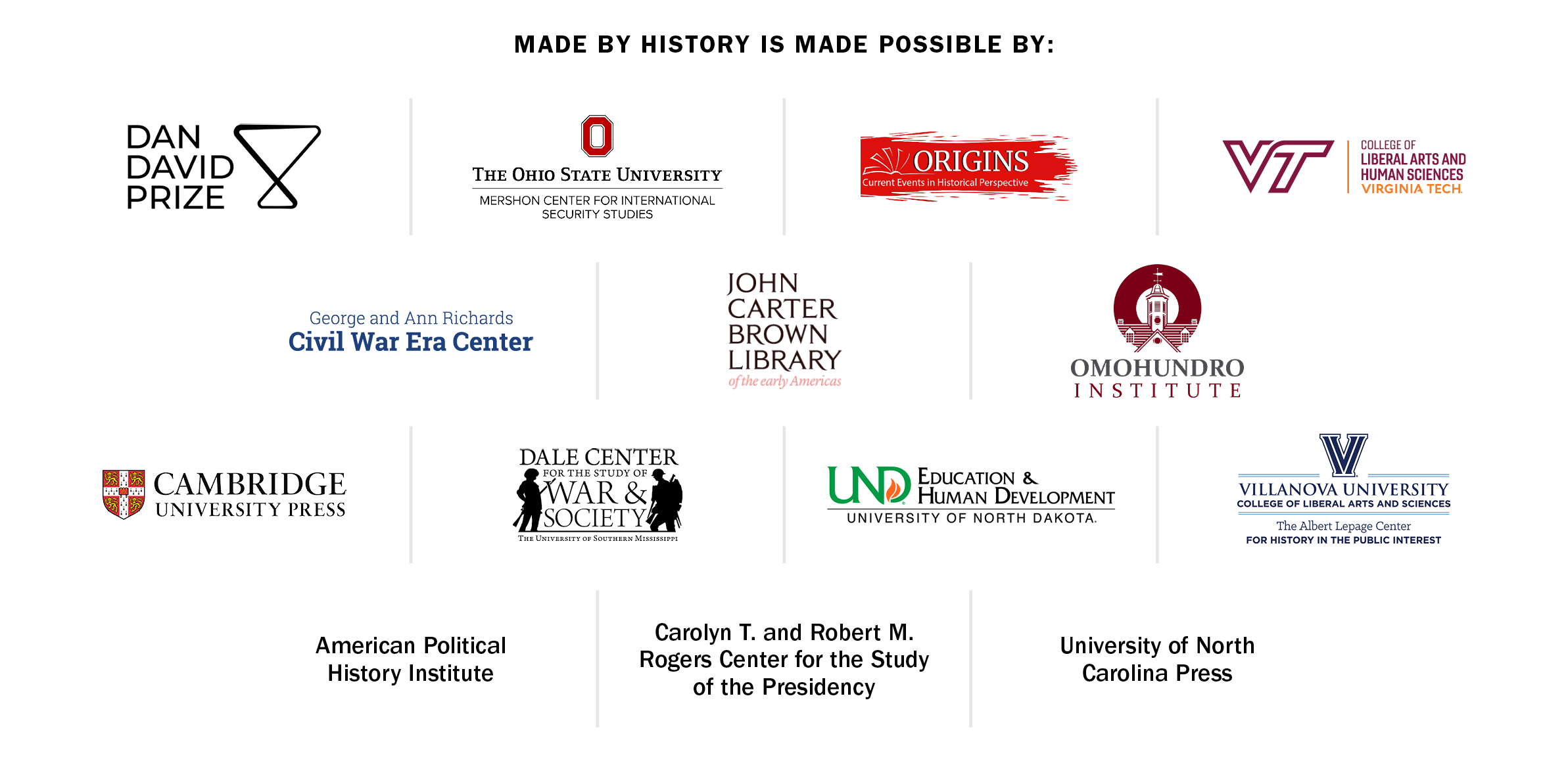The Man Who Made Ronald Reagan ‘See Red’ Is Still in Power

President Ronald Reagan warned in 1986 that if Nicaragua’s “Sandinistas” remained in power, “terrorists and subversives” would have sanctuary “just 2 days’ driving time from Harlingen, Texas.” During the 1980s, Reagan gave more speeches on the Central American country than about almost any other foreign policy issue. Congress voted countless times on his policy of undermining Nicaragua’s Cuban- and Soviet-backed government by arming insurgents known as the Contra. White House officials said the stakes were tremendous: “Central America,” top diplomat Jeane Kirkpatrick declared, was “the most important place in the world.” For their part, the left-wing revolutionaries who ruled Nicaragua—the Comandantes of the Sandinista National Liberation Front (FSLN)—became icons of the Cold War. In March 1986, TIME ran a cover story featuring Sandinista leader Daniel Ortega: the headline read “The Man Who Makes Reagan See Red.”
[time-brightcove not-tgx=”true”]Much has changed over the past four decades. The Cold War is over. Its ideological battle lines have faded. Today, most Americans know or care little about events in Central America, except inasmuch as they affect the migration patterns of the region’s people. Nicaraguan affairs, in particular, largely escape the U.S. public’s attention, marking a stark departure from the fervor of the 1980s. This raises a historical puzzle: How did Americans move on so quickly from this Cold War “hot spot”? Why did Nicaragua transfix them in the first place?
For 40-odd years beginning in the 1930s, Nicaragua was ruled by the dictatorship of the Somoza family. Their repressive regime was sustained, in part, by the support of successive U.S. presidents who saw the Somozas as staunch advocates of U.S. influence in Central America and the Caribbean. Few Americans, however, could locate the country on a map.
Read More: How Policies in the U.S. and Mexico Led to the Detention Center Fire that Killed 39 People
It was in 1979 that Nicaragua burst into the American public’s consciousness. That year Sandinista guerrillas entered the international scene by leading the armed overthrow of the Somoza dynasty. Once in power, they promised radical change in one of the poorest countries in the Western Hemisphere.
Cold War geopolitics amplified the revolution’s importance for Americans, arguably to the point of distortion. U.S. Cold Warriors believed that a “second Cuba” would have a domino effect across Central America, eventually creating a Soviet foothold in America’s “backyard.”
Aggressive action to confront Nicaragua’s leftist government was therefore necessary. “Nicaragua,” Reagan told lawmakers, “is just as close to Miami, San Antonio, San Diego, and Tucson as those cities are to Washington.” Similar logic justified U.S. involvement across Central America, including military support for the Salvadoran government’s war against left-wing rebels.
Those who opposed further intervention pointed out that tiny Nicaragua couldn’t actually pose a military threat to the United States. But on a symbolic level, Nicaragua provided American hawks with an opportunity to exorcise the ghost of defeat in Vietnam. The United States showed remarkable hostility toward Nicaragua’s government, through its assistance to anti-Sandinista “Contra” rebels, as well as economic sanctions and direct acts of sabotage.
This David versus Goliath dynamic that pitted the powerful United States against a small developing country enhanced the Sandinista project’s international allure. Around the world, left-leaning politicians, activists, and intellectuals hoped that the Sandinistas would create a revolutionary “third way” in Cold War politics that fused state-led wealth redistribution with respect for democratic liberties. Bernie Sanders – then mayor of Burlington, Vt. – was one of thousands of Americans who even visited Nicaragua in this period. The lofty expectations of outsiders did not always align, however, with the hard realities of governance in Nicaragua or the complex feelings and interests of its diverse population.
While the U.S. Congress, worried by the prospect of a Vietnam-like quagmire, put limits on aid to the Contra, the Reagan administration circumvented these in spectacular fashion. At one point, U.S. officials secretly sold weapons to Iran (in violation of an embargo) and used some of the proceeds to finance the insurgents in Nicaragua. The ensuing Iran-Contra scandal rocked Washington.

Nicaragua fell off the U.S. political radar in 1990, just as the Cold War was ending. Following a war that claimed tens of thousands of lives, Nicaraguans voted the FSLN out in free elections that year. The Revolution was over. Outgoing president Daniel Ortega ditched his olive green fatigues and started fresh as a civilian politician.
Read More: The Cold War Didn’t Have to End. Gorbachev Made It Happen
But while Americans moved on, Nicaraguans picked up the pieces. Like contemporaneous conflicts in Guatemala and El Salvador, the war between Sandinistas and Contras had wrecked the country’s economy and left its social fabric hanging by a thread. A transition to electoral democracy in the 1990s brought some form of peace but failed to solve underlying problems of poverty and inequality.
Amid the resulting precariousness, Ortega was reelected as president in 2006 after winning only 38% of the vote. He soon consolidated a dictatorship with his wife (and, later, vice president) Rosario Murillo, facing relatively little institutional or societal pushback.
Their neo-Sandinista regime became far more repressive than the revolutionary government that grabbed headlines in the 1980s. In an example of how Cold War-era ideological frameworks have mutated since then, Ortega and Murillo eschew the socialist economic policies of yesteryear and espouse Christian-conservative social values. At the same time, their regime maintains anti-American rhetoric and enjoys friendly ties with countries like Russia, China, North Korea, and Iran.
When Nicaraguans finally launched protests to demand democratic freedoms in the spring of 2018, Ortega and Murillo launched a crackdown of historic proportions. That year police and paramilitary repression killed over 300 people and injured and displaced many more. By 2023, the regime had jailed or exiled virtually every voice of dissent, including many Sandinistas who helped lead the 1979 revolution. A United Nations inquiry last year accused the regime of having committed “crimes against humanity.” Stunned by the scale of repression, the study’s authors saw fit to compare Ortega’s Nicaragua to Germany under the Nazis.
Whereas Americans followed events there closely in the 1980s, Nicaragua’s current drama doesn’t resonate in the same way. This shift reveals how powerfully geopolitical optics determined what mattered during the Cold War. At the time, U.S. foreign policymakers deemed the Sandinista government unacceptable and spent significant resources seeking its destabilization. Today, few in the West find Ortega’s presidency especially relevant for their interests. Nor do they feel threatened by Nicaragua’s alignment with Russia and China. After all, Nicaragua — a country of less than 7 million people — has a Gross Domestic Product of roughly 15 billion dollars. (For context, the Bureau of Economic Analysis calculates that of Tucson to be around 55 billion.)
Read More: My Father Was a Vocal Critic of Nicaragua’s President. Now He’s a Political Prisoner
The history of Nicaragua’s time in the U.S. purview is a poignant reminder that narratives shaping our understanding of the world around us are often ephemeral, and reveal more about the people observing and generating those narratives than the realities of those involved. What we find pressing in world politics today may seem trivial in a few decades, just as there are current crises whose significance we will only fully grasp in hindsight.

The armed conflicts of the 1970s and ’80s, in which U.S. financing and weapons played a major role, traumatized Central Americans and left their countries more impoverished and violent than they might have otherwise been. This, in turn, is one reason why so many people leave the region and come to the United States (including a small but rapidly growing number of Nicaraguans). The headlines came and went, but the consequences of being a hot spot were both tangible and lasting.
Mateo Jarquín is Assistant Professor of History and Co-Director of the Program in War, Diplomacy, and Society at Chapman University. He is the author of The Sandinista Revolution: A Global Latin American History (University of North Carolina Press, 2024).
Made by History takes readers beyond the headlines with articles written and edited by professional historians. Learn more about Made by History at TIME here. Opinions expressed do not necessarily reflect the views of TIME editors.